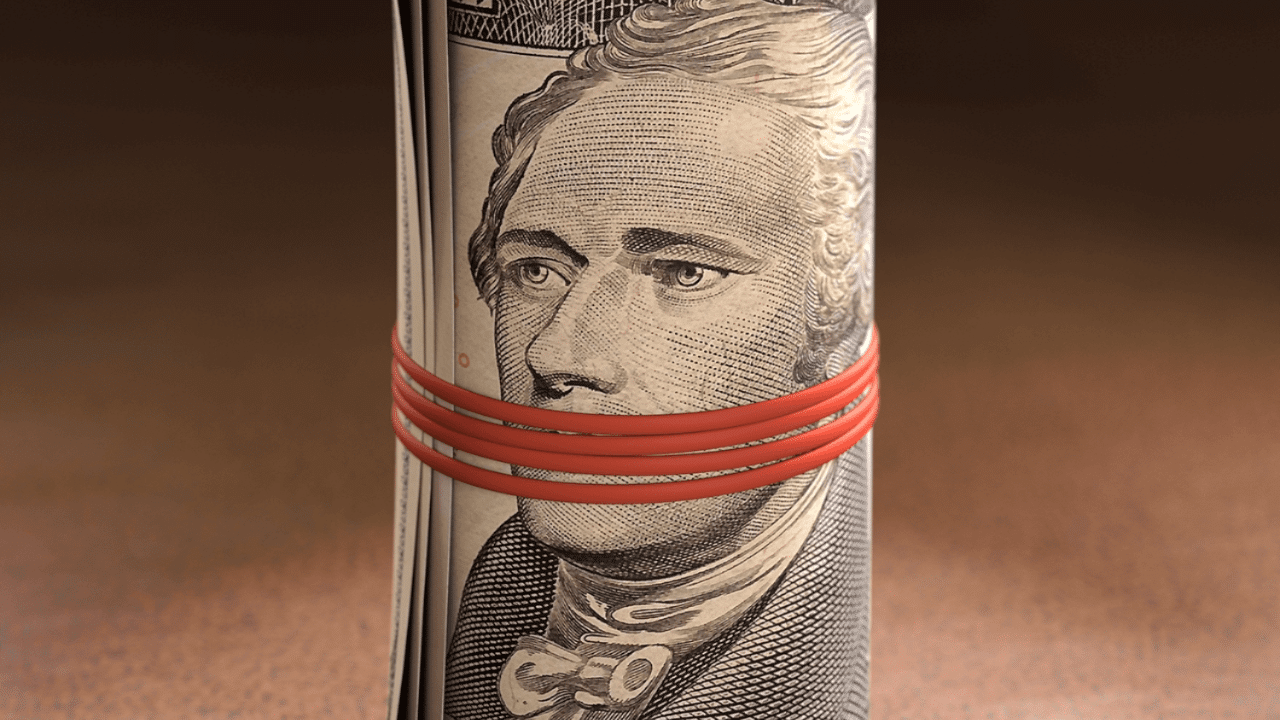Alexander Hamilton had a lot of big government plans for the United States, but his craziest plan may have been his proposal for an 11-point plan for government that he gave during a day-long speech at the Philadelphia Convention on June 18, 1787.
At this stage of the convention, there were two competing plans, the Virginia Plan, written primarily by James Madison, which was the big government plan at the time, and the New Jersey Plan, which generally maintained the form of government under the Articles of Confederation, but gave it some additional powers, such as collecting revenue and foreign affairs.
But Hamilton believed neither of these plans went far enough.
He was particularly opposed to the New Jersey Plan, “being fully convinced that no amendment of the Confederation, leaving the States in possession of their Sovereignty could possibly answer the purpose.”
Clearly, he did not believe in leaving the individual states or the people with any sovereignty whatsoever, giving all of it to a central authority.
Early in his speech, Hamilton spoke about what he believed were the “great and essential principles necessary for the support of government.”
1. An active and constant interest in supporting it.
2. The love of power. Men love power.
3. A habitual attachment of the people.
4. Force, by which may be understood a coercion of laws, or coercion of arms.
5. Influence – he did not mean corruption, but a dispensation of those regular honors and emoluments which produce an attachment to the government.
Hamilton suggested that getting rid of the states would be a good idea. “If they were extinguished… great economy might be obtained by substituting a General Government.”
The only caution he took on this was because he acknowledged merely “proposing such a measure” would “shock the public opinion,” and say “no other necessity for declining it.”
The first point of his 11-point plan called for a two-body “Supreme Legislative Power” containing an Assembly and a Senate, “with power to pass all laws whatsoever.”
This was eerily similar to the British Declaratory Act of 1766 which expressly claimed power over the colonies “in all cases whatsoever.”.
Many of the revolutionaries considered the act the source of the controversy between the colonies and Great Britain. Thomas Paine cited it in The American Crisis in December of 1776, writing, “Britain, with an army to enforce her tyranny, has declared that she has a right (not only to tax) but ‘to bind us in all cases whatsoever,’ and if being bound in that manner, is not slavery, then is there not such a thing as slavery upon earth.”
John Hancock echoed this view to the British system in his Massacre Day Oration on May 5, 1774, saying, “They have declared that they have ever had, and of right ought ever to have, full power to make laws of sufficient validity to bind the Colonies in all cases whatever. They have exercised this pretended right by imposing a tax upon us without our consent.”
By proposing a legislature with the same power of “all laws whatsoever,” Hamilton was essentially calling for a return to the British system the founders and old revolutionaries fought a long, bloody war to secede from.
In point four of his plan, Hamilton also proposed an executive that could serve for life, writing, “the supreme Executive authority of the United States to be vested in a Governor, to be elected to serve during good behavior; the election to be made by Electors chosen by the people in the Election Districts aforesaid. The authorities and functions of the Executive to be as follows: to have a negative on all laws about to be passed, and the execution of all laws passed.”
Point three called for a Senate that would be elected by the people at large, as we have today since the 17th Amendment, and for Senators to serve during “good behaviour,” which would set the stage for life-terms as well.
In his 11th point, he wanted to disarm the states and fully nationalize the militia.
And if that wasn’t enough, point ten would help put his plan in motion to eliminate the states, keeping them in name only.
“All laws of the particular states contrary to the constitution or laws of the United States to be utterly void. And the better to prevent such laws being passed the Governor or President of each state shall be appointed by the general government and shall have a negative upon the laws about to be passed in the state of which he is governor or President”
In a 1792 letter to George Washington, Thomas Jefferson explained the difference between his views on the constitution and Hamilton’s, writing, “My objection to the constitution was that it wanted a bill of rights securing freedom of religion, freedom of the press, freedom from standing armies, trial by jury, and a constant Habeas corpus act. Colo. Hamilton’s was that it wanted a king and house of lords. He wished the general government should have power to make laws binding the states in all cases whatsoever.” [emphasis added]
Although Hamilton’s “Plan of Government” was immediately rejected by the Convention, meaning he didn’t get what he wanted on paper, he worked tirelessly after ratification to establish similar powers through different means.
Whether it was the internal Whiskey Tax, the First National Bank, or redefining “necessary” as “convenient,” Alexander Hamilton relentlessly pushed for a central government with nearly unlimited power.
And we’re all paying the price for it today.



